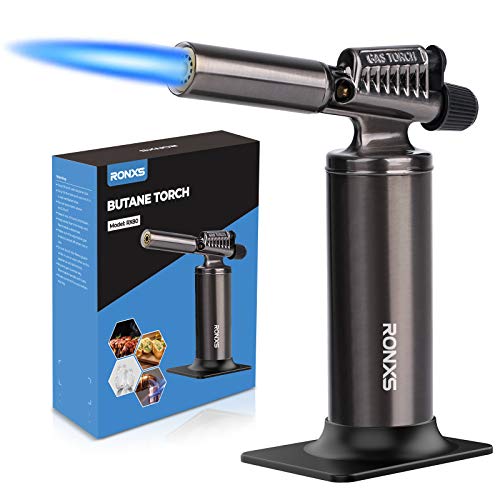Best Torch For Heating Bolts : Review And Buying Guide
Brandon Forder May 19, 2024 1:11 PM
Perhaps you'd like some additional details about best torch for heating bolts, and we can help you get them. The ratings were formulated after considering the opinions of specialists. Below you'll find our picks for the best torch for heating bolts products. Would you benefit from some guidance in identifying the appropriate best torch for heating bolts? We've included a comprehensive catalog of every kind and shade of best torch for heating bolts product currently on the market.
After best torch for heating bolts was created, our team spent countless hours researching and testing available models.
Look at how we stacked up!

Compare Products
- SCORE8.2
- BrandBernzomatic
- Prime
Last update on 2024-05-19 / Affiliate links / Images, Product Titles, and Product Highlights from Amazon Product Advertising API
Whether you are a car mechanic or simply a homeowner, a torch is a useful tool for many home improvement and construction projects. Whether you want to melt metal to make solder, or to get rid of rusted bolts, a torch will help. However, not all torches are created equal, and there are many differences to consider. It can be a challenge to find the best torch for heating bolts. However, a little research will help you narrow down your search and find the best torch for your needs.
Propane and butane are two common types of fuel used in torches. Both can heat up metal, but propane is better for welding and soldering. Butane is a lighter fuel, and it burns more slowly than propane. This makes butane torches more convenient for smaller jobs. However, propane torches are generally better for larger projects. They burn at up to 3,600 degrees, which is much hotter than butane. They also burn cleaner, which is a plus.
Both torches have their strengths and weaknesses, and both can do almost the same number of jobs. In general, propane torches are more popular, as they are more versatile. However, they are also more dangerous to use inside. They are not ideal for kitchen use, and they can be hazardous to health, especially when you have to do a lot of welding. You should only use propane torches outside, with plenty of ventilation. Butane torches are also safe for use inside, but they burn slower.
Whether you use propane or butane, keep in mind that you should always keep an open flame away from flammable materials. You also want to keep the torch far away from anything that can ignite, such as fuel lines. You can also purchase a fan to help flush the gas from the heating process. This will make the process safer and will help you prevent burns.
If you have a stubborn bolt that won't come out, you can try using a penetrating oil. This will heat up the fastener and help it to come out. However, you should use premium penetrating oils, as they will do the job more efficiently and safely. For example, PB Blaster is one of the best penetrating oils to use for stubborn bolts.
If your bolts are rusted, they will need to be lubricated before you can assemble them. You can use penetrating fluid or WD-40 to lubricate them. Butane torches are also excellent for lubricating rusted bolts, as they are not flammable.
A propane torch is ideal for removing rusted bolts. It can get the metal red hot in a short amount of time. However, it doesn't reach as high of temperatures as oxy-acetylene. It's also more dangerous to use inside, so it's best to use outside with plenty of ventilation.
Using a torch to get a stuck bolt out can be a risky process. You should make sure you use the right amount of heat, and that you don't damage the bolt. However, in some cases, repeated heating and cooling can fix the problem.



![Power Probe MT Micro Torch (PPMT) [Car Diagnostic Tool, Butane Powered, Heating, Soldering Tool, Electronic Ignition, Adjustable Flame & Temperature] , Black Power Probe MT Micro Torch (PPMT) [Car Diagnostic Tool, Butane Powered, Heating, Soldering Tool, Electronic Ignition, Adjustable Flame & Temperature] , Black](https://m.media-amazon.com/images/I/31WhktjXdoL._SL500_.jpg)



























